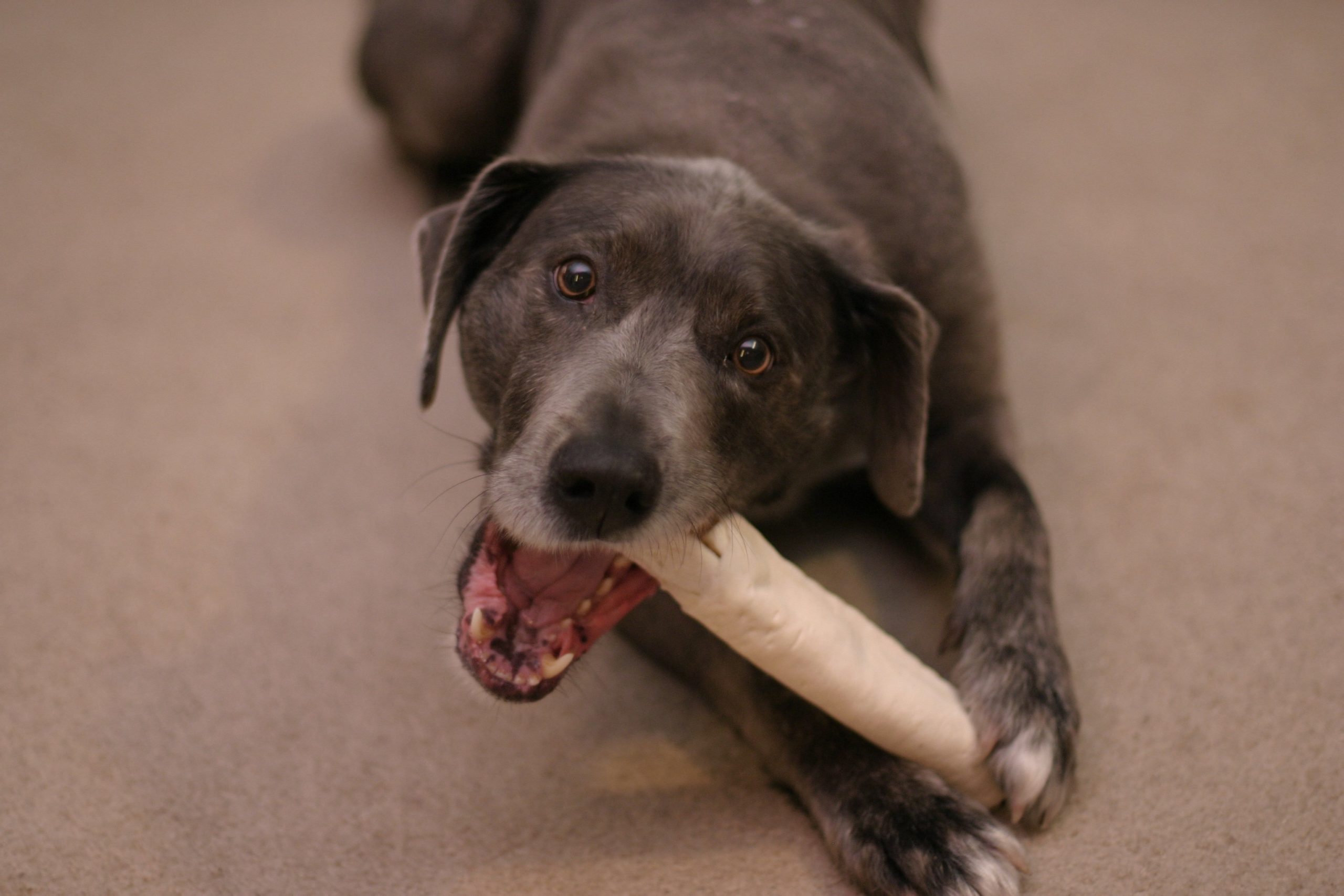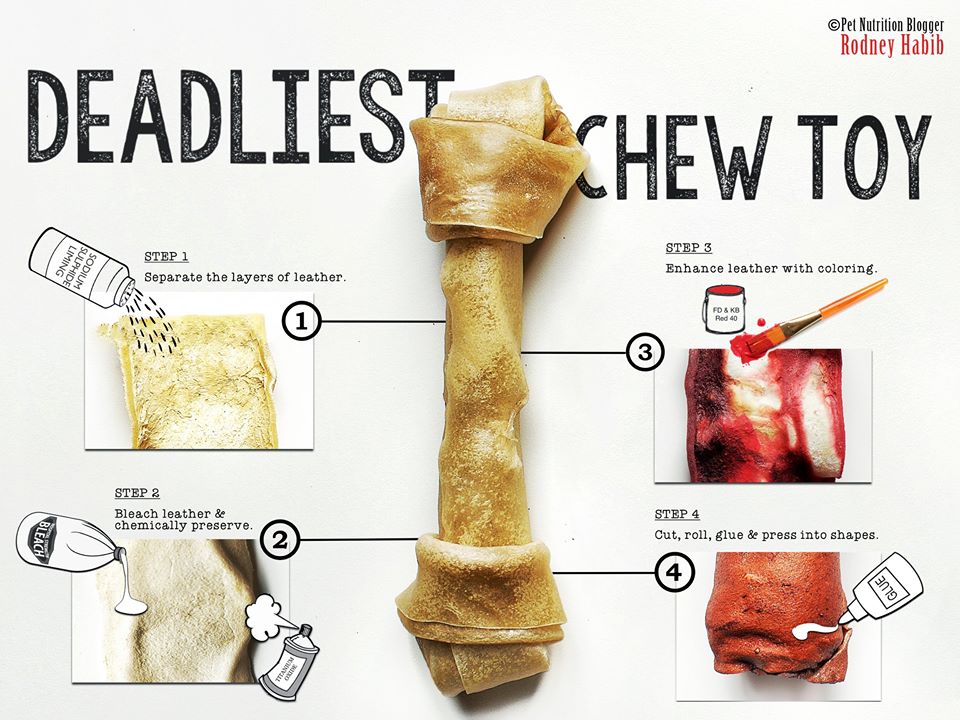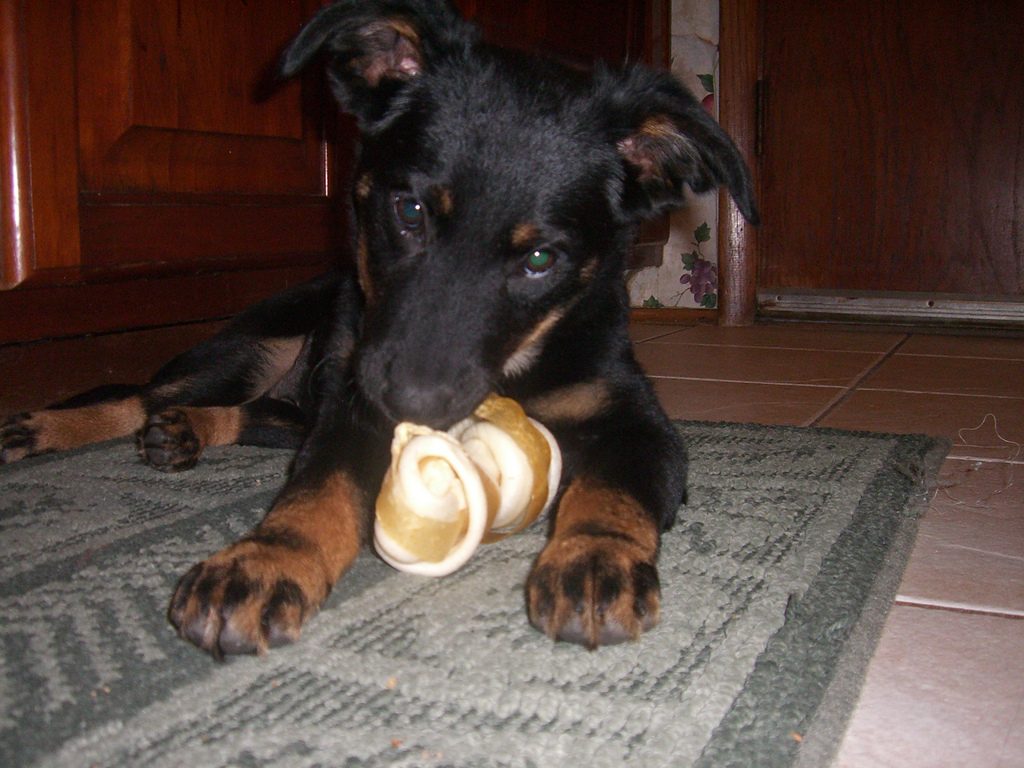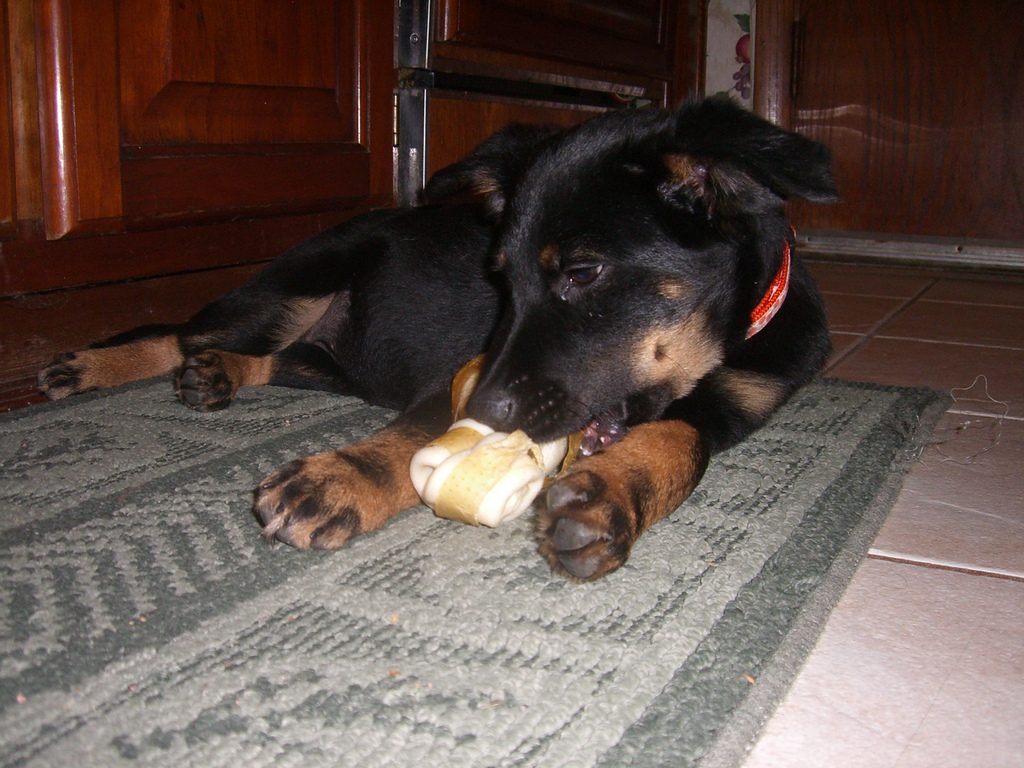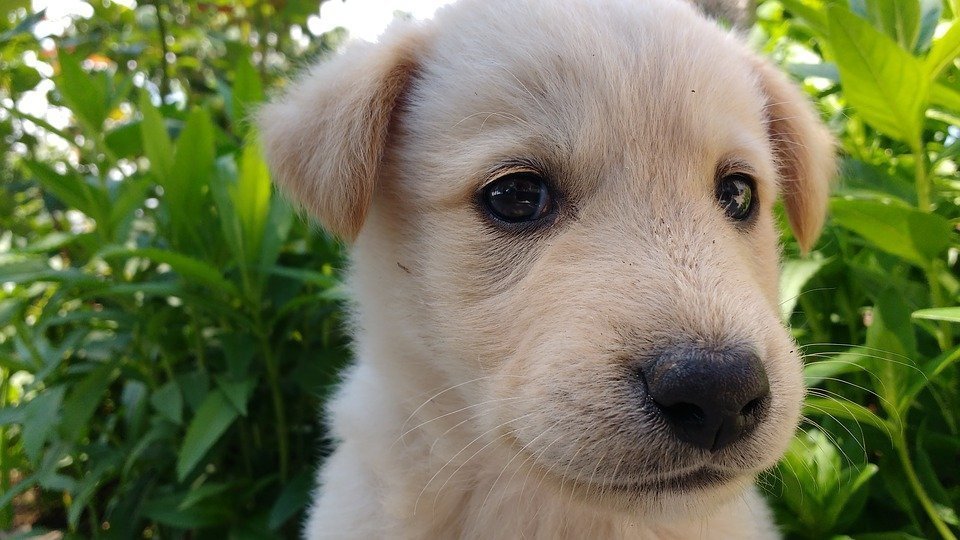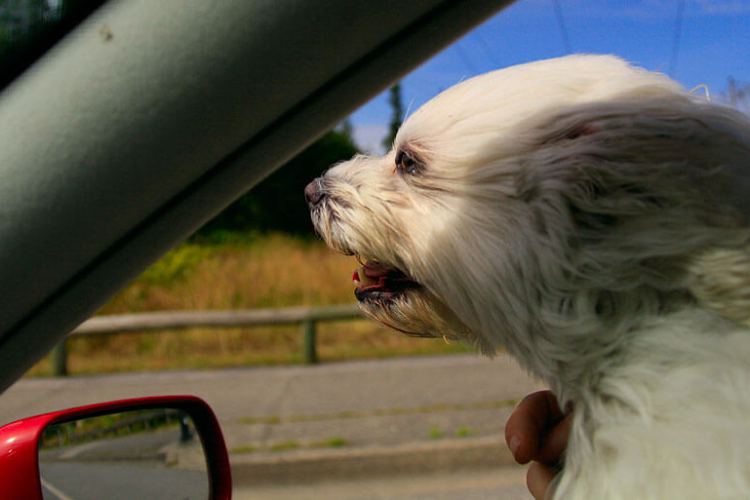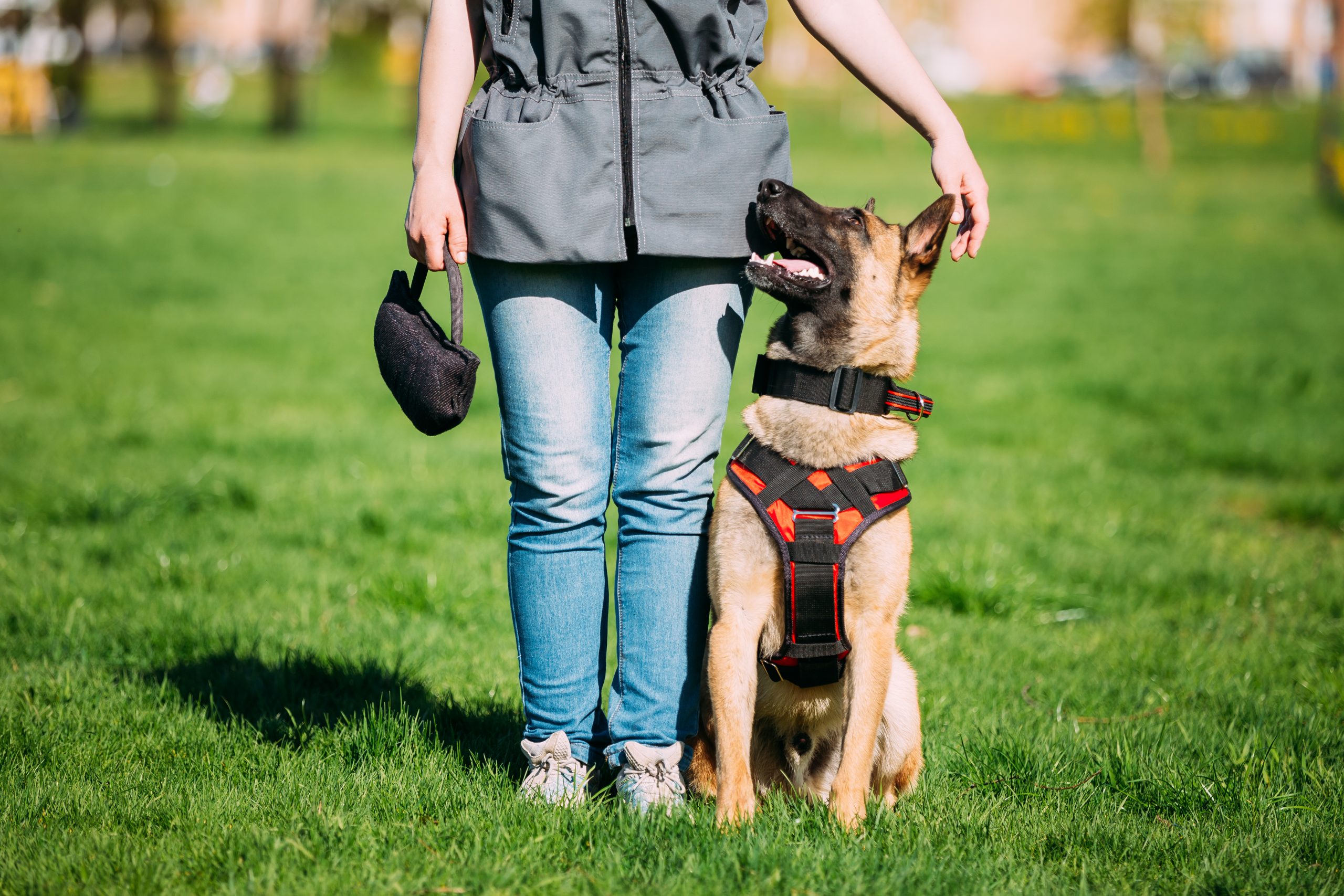This page contains affiliate links. This means that we may get a small commission for recommending products, if you choose to click on something and buy it. This does not cost you anything, but we wanted to be honest and let you know!
(Last Updated On: 6th August 2022)Rawhide bones used to be one of the most popular dog bones for aggressive chewers due to toe their soft but durable texture. The keywords here are that it “used to be” because a vast amount of research has been completed to prove that they can be bad for dogs as they can contain toxic chemicals.
Rawhide bones come from the inner layer of a cow or horsehide, which is then cut and cleaned. They can then be molded into a range of chews, bones, treats, and more.
Table of Contents
How is Rawhide Made?
A dog rawhide bone is pretty much a byproduct of the leather industry. The inner portion of the hide is of no use to the leather industry. Leather products are made using the top grain of the hide, which is then tanned. The raw section of the hide is what is used as the main ingredient for rawhide dog bones.
There are so many dog owners that think that rawhide bones are made from dehydrated meat or similar but this is simply not true. If you need a visual representation of what a rawhide dog bone is really made of, check out this graphic produce by Rodney Habib, who is the founder of Planet Paws.
What are the Benefits of Rawhide Bones?
The benefits of rawhide bones are very much similar to other dog chews that can withstand hours of chewing. Rawhide bones can outlast many chews or bones and this chewing simulation is great for dogs that suffer from anxiety as well as keeping their teeth nice and healthy.
However, as good as they are to chew on, there are drawbacks that you should be made aware of before giving rawhide to your dog.
Dangers of Rawhide Bones
Although the risks of rawhide bones are fairly small. There are some dangers in the first place is enough to cause concern. Considering there are lots of healthy alternatives, why would you want to put your dog at risk for the sake of these bones?
Below are some of the risks associated with rawhide:
- Choking
- Blockages
- Contamination
- Sensitivity to Rawhide
- Unhealthy ingredients
- Dangerous preservatives and additives
- … and much more
Healthy Alternatives to Rawhide Bones
There are so many healthy alternatives to rawhide bones with the most popular being Bully/Beef chews. What is the point of putting your dog at risk for the sake of rawhide bones? When searching for alternatives, ensure they meet these factors:
- No preservatives
- Low in fat and calories
- Easy to chew
- Don’t splinter easily
- Offer healthy nutritional values
- Tasty flavors
Still Want To Feed Them Rawhide?
Some dogs simply love to chew on rawhide treats, chews and bones and with precaution, you can still give them what they want. The most important factor to consider is to check the country of origin and read the quality and safety certifications. If they are nowhere to be found, alarm bells should be ringing in your head.
The size and shape of the rawhide are fairly important too in order to prevent any blockages or choking. The long rawhide strips without any easy to tear off sections are the best. You can choose one that suits the size of your dog.
Finally, when they are chewing on the rawhide, you must be supervising them and ensure they are not going to swallow them whole. It is advised that you also take the chew from them once its small enough to swallow to prevent blockages too. This is because rawhide can multiple in size when digested by the dog.
Conclusion
Hopefully from reading this article, you will understand that rawhide dog bones are simply an unhealthy byproduct of the leather industry with very little nutritional values. The potential risk to your dog is simply not worth taking the risk for either with so many healthy alternatives available.
Ian is an avid outdoorsman and dog lover. He lives in Central Florida with his wife Heather, and their 2 dogs – Panda (Purebread Rough Collie X English Golden Retriever) & Kuma (Blue Merl Purebread Rough Collie)
